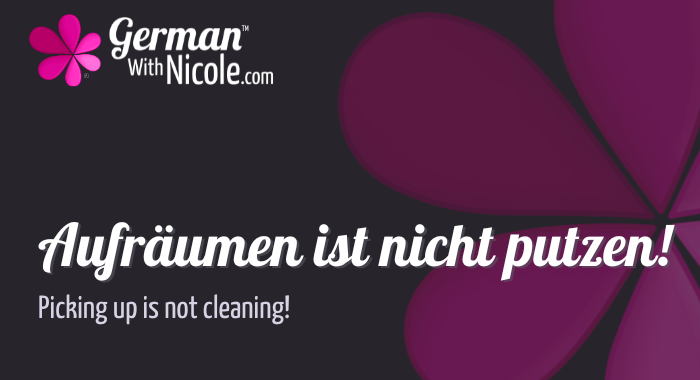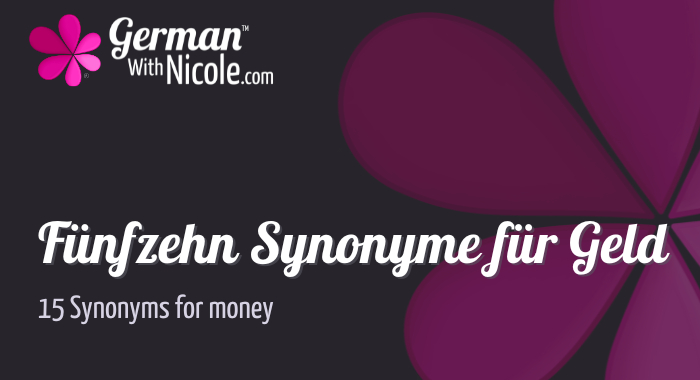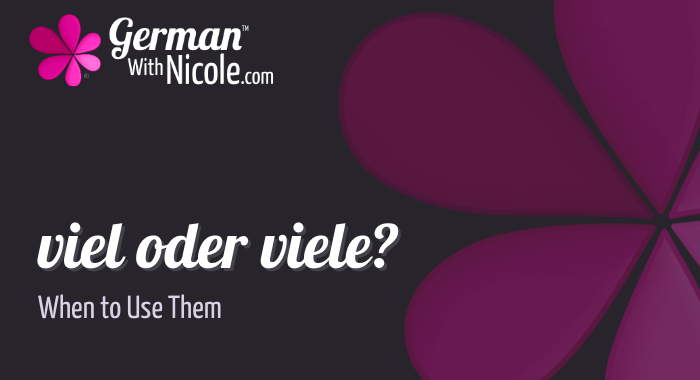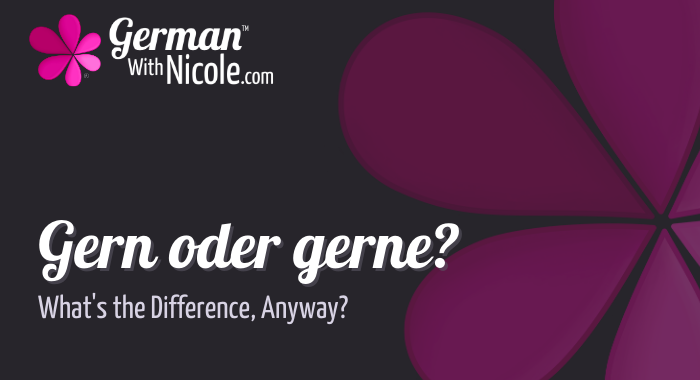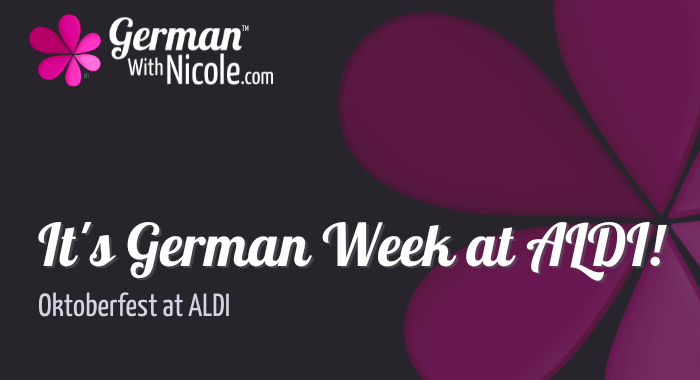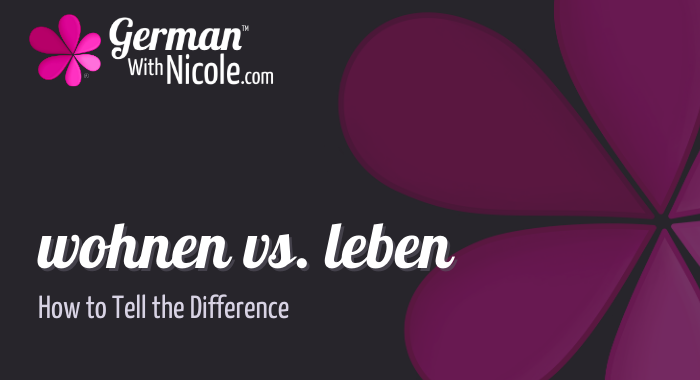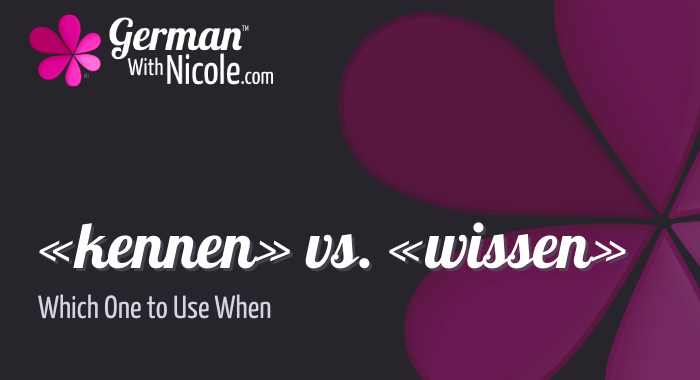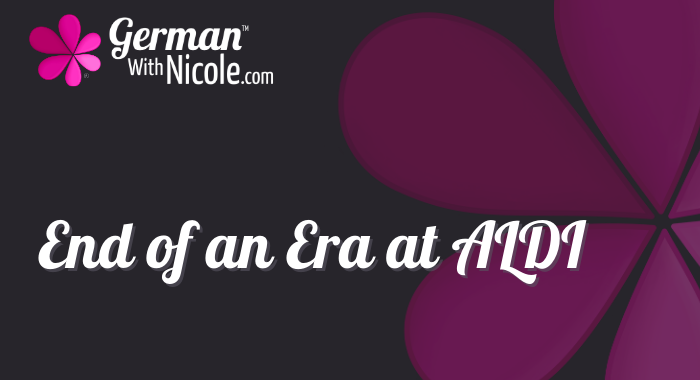Good ol'-fashioned RSS Feed
das Blog
Quick Guide to the «W-Fragen» in German and English
The W-Fragen in German are question words.
They are also known as 'open-ended questions. In English the W-Fragen also begin 'w': who, what, when, where, why, and how.
You begin learning the W-Fragen at the A1 level in German.
(These questions are different from the ja/nein Fragen or yes/no questions in German begin with the verb ("Arbeiten Sie heute?" "Kommen Sie aus Bayern?").)
In most books you usually see a list like this, it's just the German and English translations. But is that really…
Aufräumen ist nicht putzen!
Picking up is not cleaning!
So what's the difference between aufräumen and putzen?
Many German learners want to know what "to clean" is. The verb "to clean" in German is putzen. However putzen is something very specific in German--it may not be what you think!
For Germans, putzen is the actual process of cleaning, and nothing else. Americans think of cleaning as vacuuming, putting away books that might be laying about, doing the laundry, and any other amount of things. However putzen does not…
Fünfzehn Synonyme für Geld
Für Geld gibt es im Deutschen gaaanz viele Wörter. Wie viele kennen Sie schon?
There are sooo many words for "Geld" (Money) in German. How many do you know already?
Nehmen Sie sich eine Minute und schreiben Sie so viele Wörter für Geld, die Sie kennen. Mit diesen drei können Sie anfangen:
Geld, Cash, Kohle ...
Also, hier gibt's einige, sowie eine kurze Erklärung zu den jeweiligen Vokabeln.
Here are a few synonyms, as well as a short explanation to each of these vocabulary words.
Viel oder viele?
"Viel" oder "Viele"? Gute Frage!
It depends on whether or not you're speaking about something that can be counted. For example:
viel Zeit - lots of time. Time in general cannot be counted. (You can count hours, but not time itself.)
viele Menschen - many people. People can be counted.
Erfolg (success) is another example of something that cannot be counted. Certain things, yes, like finishing a degree or obtaining your driver's license, can be counted, sure, however they are very specific eve…
"Gern" oder "gerne"?
"Das mache ich gern."
"Ich gehe gern schwimmen."
oder
"Das mache ich gerne."
"Ich gehe gerne schwimmen."
Was ist eigentlich der Unterschied?! Sagt man eigentlich "gern" oder "gerne"? Gute Frage!
Man kann entweder "gern" oder "gerne" sagen--es macht praktisch keinen Unterschied. Je nach dem, was Sie sagen wollen, können Sie frei wählen, ob Sie "gern" oder "gerne" sagen möchten.
![]()
You can use either "gern" or "gerne" in German, it doesn't really make a difference. Depending on the sente…
It's German Week at ALDI! - Oktoberfest
ALDI is a world-wide discount supermarket store from Germany and they offer a limited amount of offerings for very low prices. Every week they have a different special on special purchase items, so check their weekly ad to find out what the specials are.
From what I've been able to discover, ALDI has German Week four times a year, so once a quarter. One of these times it's Oktoberfest - products imported from Germany to help you celebrate on this side of the big pond.
ALDI has their own brands…
Wiederholen Sie, bitte!
5 Ways to Re-Use Your German & Learn More in the Process
There is one key ingredient to students who learn the most in their German lessons: they repeat, repeat, repeat, repeat, repeat.
My first German teacher was (and surely still is) an excellent instructor. She told me if I wanted to learn a new word in German, I'd have to use it 28 times.
28 times!! That's a lot of repetition. (If that's an average, sometimes it goes faster--say 20 repetitions, and sometimes it takes longer, say 40 repet…
wohnen vs. leben
IKEA Germany advertises with a catchy slogan:
Wohnst du noch, oder lebst du schon?
Are you still living, or are you already living?
Sehr lustig.
This works in German since wohnen ≠ leben. But the difference is significant. Here's how to tell the difference between wohnen and leben and which one to use when.
wohnen
"wohnen" is used for short-term situations.
"Ich wohne bei meinen Eltern" ...because I'm at home for the summer.
"Ich wohne bei einer Freundin" ...because I'm waiting for m…
kennen vs. wissen
"Kennen" is not the same as "wissen" and it can be very confusing trying to tell the two apart.
Here you will learn what "kennen" means, what "wissen" means, and finally how to tell the difference.
There are example sentences, too, and I highly recommend you grab your German notebook and write them down so you can refer back to them later.
kennen
Ich kenne... is for things you can get to know. You might not have always known your German friend Marius, however you got to know him once, which …
End of an Era at Aldi
The brothers Albrecht founded the discount chain Aldi in Germany after World War II. Now, four years after his brother Theo, Karl Albrecht has passed away, signaling the end of the first generation at Aldi.
The brand Aldi has grown to become a world-wide chain of discount stores, with their own Aldi-branded products and efficient store layouts, with weekly specials on special purchases--a different theme every week.
 One of the things the brothers Albrecht were best known for was their incredib…
One of the things the brothers Albrecht were best known for was their incredib…
Categories
- A1 (70)
- A2 (55)
- B1 (47)
- B2 (24)
- C1 (22)
- Deutsch lernen (82)
- Einkaufen (15)
- Essen (12)
- Grammatik (24)
- Hören (14)
- Landeskunde und Kultur (50)
- Lesen (11)
- Musik (5)
- Nachrichten (4)
- Podcast (66)
- Pronunciation (3)
- Schreiben (4)
- Schwäbisch (4)
- Spiele und Spaß (Games and Fun) (12)
- Sprechen (12)
- Vokabeln (41)
- Video (13)
Would you like to hear about future German classes with Frau Warner?
With the E-Post, you'll receive information on German class registration and goings-on in German classes, all written by Frau Warner. You'll receive an email on Tuesdays, plus an extra email or two when class registration opens or there's something new.
If you use Gmail: please check your "promotions" folder.

